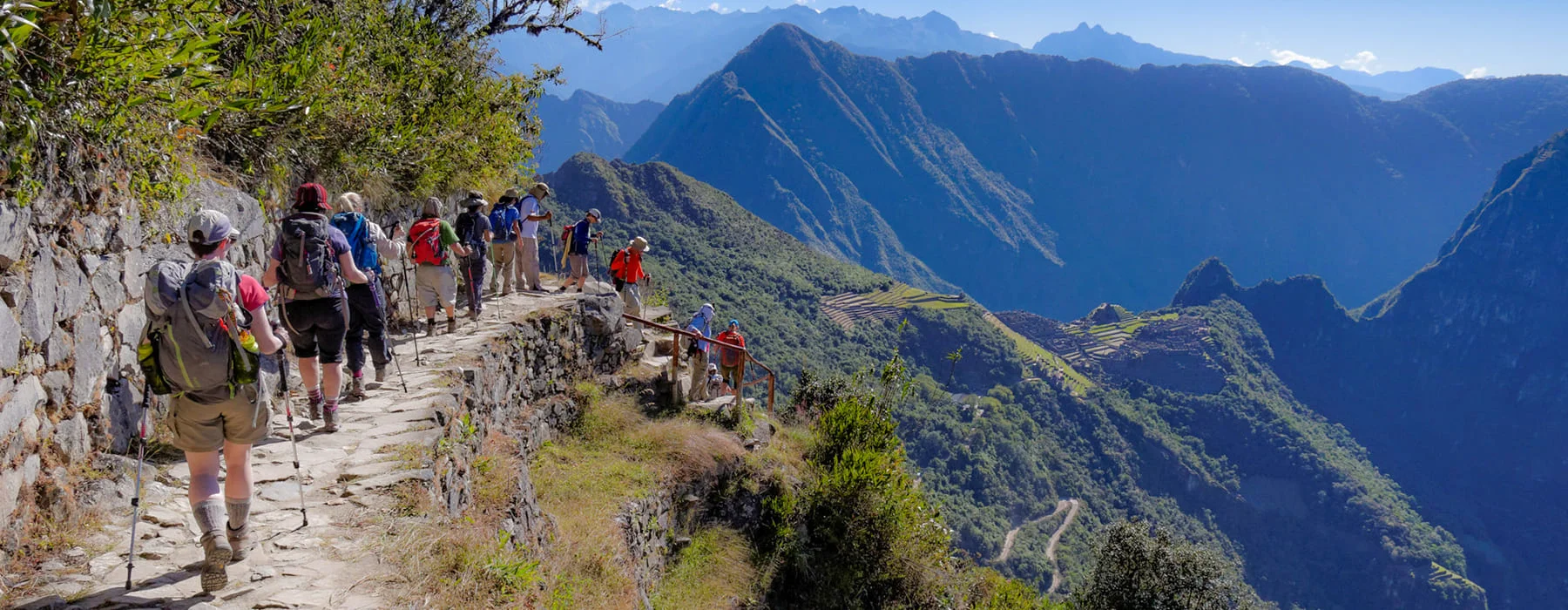Traveling to Cusco and Machu Picchu is a unique experience, but the altitude in Cusco can be a challenge for those who are not used to it. At nearly 3,400 meters above sea level, it is common for visitors to feel the effects of altitude sickness in Cusco, Peru, known locally as ‘soroche’. However, with proper preparation, you can minimize these symptoms and enjoy your adventure to the fullest. Here is a complete guide to acclimatize to the altitude in Cusco and avoid the most common health problems.
What is altitude sickness?
Altitude sickness occurs when the body does not adapt quickly enough to the low oxygen levels found at higher elevations. Common symptoms include headache, dizziness, nausea and fatigue. It is important to be aware of these signs and take them seriously, as ignoring them could affect your experience at Machu Picchu or during treks, such as the Inca Trail or Salkantay Trek.
Tips for acclimatizing to altitude in Cusco
1. Take it easy for the first few days
Upon arrival in Cusco, it is best to allow your body to gradually adjust to the altitude. Avoid strenuous physical activities for the first two days. Use this time to explore the city at your own pace, enjoy the local culture and rest.
2. Hydrate properly
Drinking water is essential to combat the effects of altitude. Dehydration can worsen the symptoms of altitude sickness, so make sure you drink 2 to 3 liters of water a day. Avoid alcoholic beverages and coffee in excess, as these can dehydrate you faster.
3. Consume coca tea
Coca tea is a very popular natural remedy in the Andean region to alleviate the symptoms of altitude sickness. Chewing coca leaves or drinking coca tea can help improve circulation and increase your energy. Many hotels and restaurants in Cusco offer coca tea free of charge to travelers.
4. Consider taking medication
If you are prone to the effects of altitude or have medical concerns, consult your doctor before your trip about medications such as acetazolamide (Diamox). This drug can help prevent or reduce the symptoms of altitude sickness. It is important to start taking it one or two days before arriving in Cusco.
5. Avoid heavy meals
Opt for light, easy-to-digest meals, especially during the first few days. Foods high in carbohydrates, such as breads, pasta and rice, can provide the necessary energy without overloading your digestive system.
6. Gradually climb to higher altitudes
If your itinerary includes visiting other high points besides Cusco, such as the Sacred Valley or the Inca Trail, plan your hikes gradually. This allows your body to better adapt to changes in altitude. Many travelers choose to spend a couple of days in the Sacred Valley before heading to Machu Picchu, as this is at a lower altitude than Cusco.
7. Sleep well
Good rest is key to a successful acclimatization. Altitude can affect sleep, so make sure you get enough rest before and during your stay in Cusco. Maintain a proper sleep routine and avoid long naps during the day.
How to acclimatize in Machu Picchu
Although Machu Picchu is at a lower altitude than Cusco (2,430 meters above sea level), the physical exertion involved in exploring the ruins and hiking up Inti Punku or Machu Picchu Mountain can intensify the effects of altitude. Here are some additional tips for acclimatization in Machu Picchu:
1. Take your time when exploring.
Don’t rush through the archaeological site. Enjoy every moment, make frequent stops and drink water to stay hydrated.
2. Consider spending a night in Aguas Calientes
If you have time, spending a night in Aguas Calientes before visiting Machu Picchu will help you acclimatize better, as this town is at a lower altitude than Cusco. This will allow you to be more rested for your visit to the citadel.
When to seek medical help
If you experience severe symptoms of altitude sickness, such as difficulty breathing, confusion or inability to walk, it is crucial to seek medical attention immediately. Some hotels in Cusco have supplemental oxygen for guests, and there are also clinics that specialize in cases of altitude sickness.



